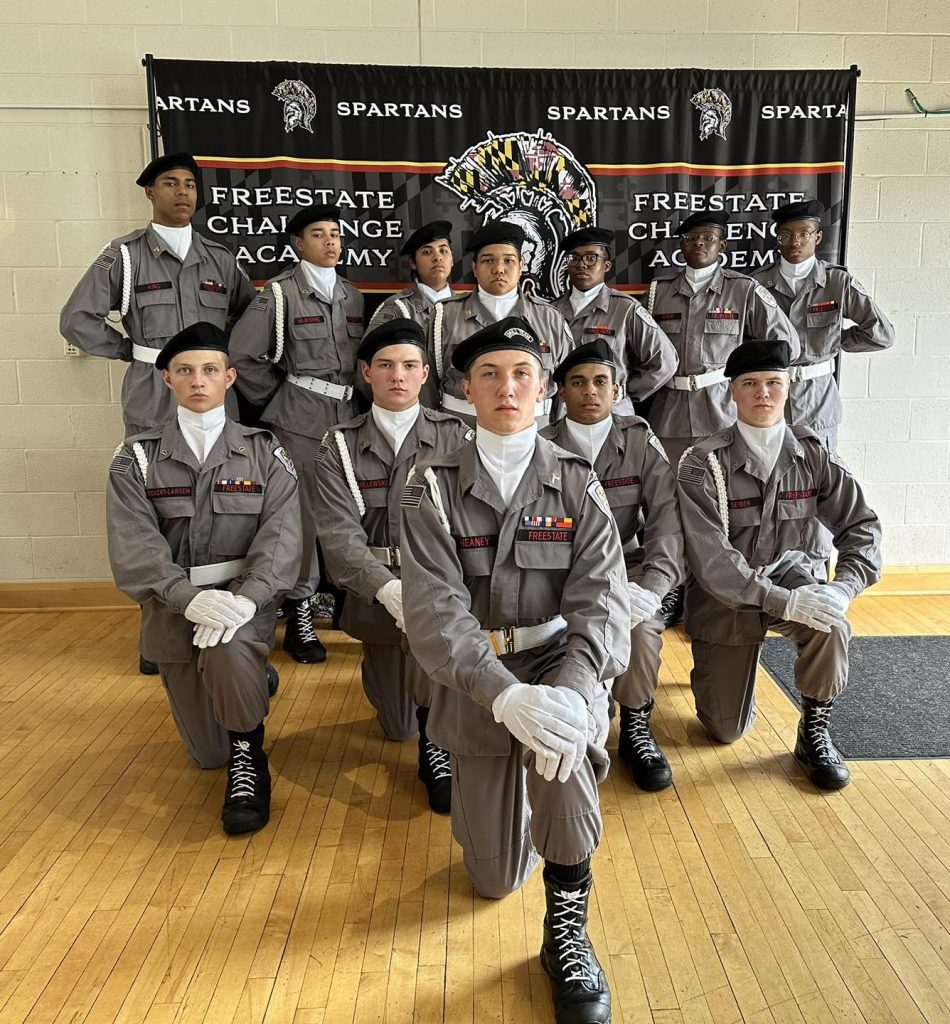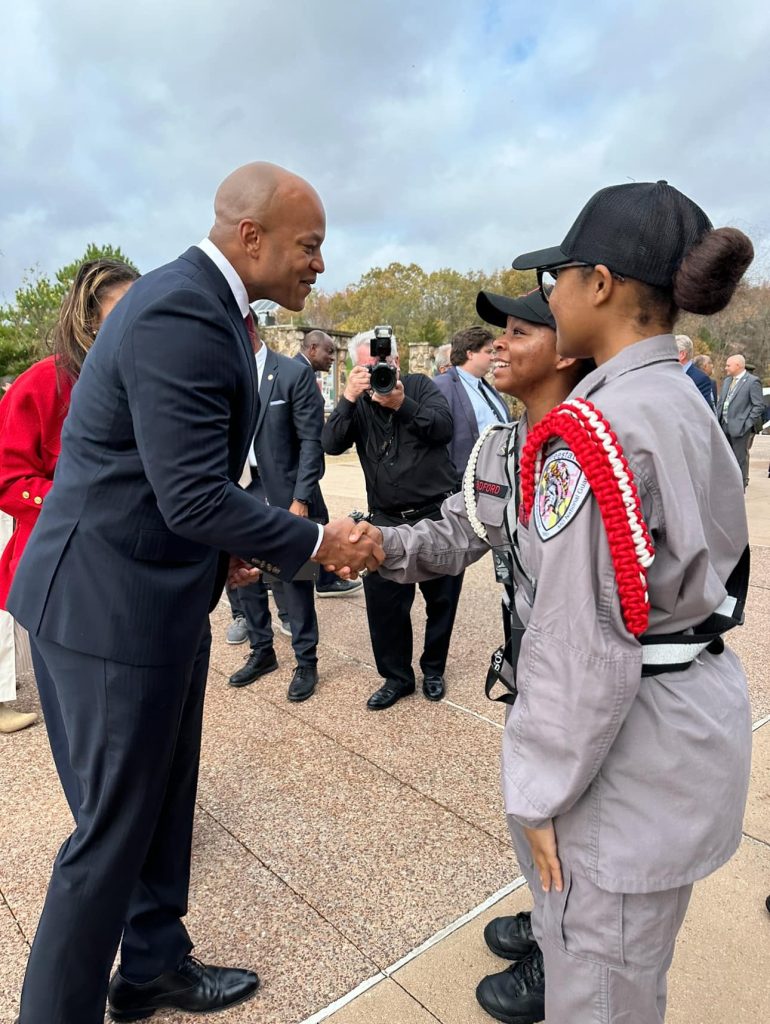Our History

During the 1990s, the Rockefeller Foundation saw the need to provide opportunities for young people in the United States to work to overcome problems in their lives. In 1991, the Joint Armed Services Committee directed the National Guard to determine how best to add value to America by providing young people value, skills, education, and self-discipline while incorporating the structure and esprit de corps found in the military model. A five-year ChalleNGe Pilot Program began operating in 1993 in 10 states under Public Law 102-484. More than 27 states have since embraced challeNGe.
The Maryland Freestate ChalleNGe Academy is one of the 10 original states that began a ChalleNGe Program. The State of Maryland endorses it and is in a cooperative agreement between the Maryland National Guard and the National Guard Bureau. The academy is located on Aberdeen Proving Ground in Harford County, Maryland. It is a tuition-free program that offers teens and young adults, ages 16 to 18, an opportunity to improve their future by providing the skills, education, and self-discipline needed to become responsible, productive citizens.
Our Mission
Tough, Demanding, No-Nonsense, Structure, Discipline, Accomplishment! These words define the Freestate ChalleNGe Academy and lead to your future success!
Life is a challenge in many ways. While some youth have different life experiences, many realize the same results. The Freestate ChalleNGe Academy allows youth to change their lives by providing a second chance to become productive citizens.
The purpose of the Freestate ChalleNGe Academy is to provide youth with academic, job, and life skills training, emphasizing positive values, in a structured environment that will give them hope and the opportunity to become productive citizens.
The Freestate ChalleNGe Academy (FCA) is a National Guard Youth ChalleNGe Program division. Established under the authority of both federal and state law in 1993, the FCA is a state-run 17 ½ month residential and post-residential intervention for 16-18-year-olds who have dropped out of high or are at risk of dropping out.
The Freestate ChalleNGe Academy is located in the Edgewood Area of the Aberdeen Providing Ground, near Edgewood, Maryland. It serves students from around Maryland and accepts applications year-round. Classes begin twice yearly, in January and July, and are continuous for 5 ½ months. Following the residential phase of the program, cadets must complete the 12-month post-residential phase to complete the Freestate ChalleNGe Academy program successfully.
The ChalleNGe program is a great opportunity for the youth to learn about themselves, challenge all their capabilities and realize personal accomplishment! Academy staff and personal mentors work diligently with cadets to ensure they maintain their track to success and accomplishment.
Our entire Freestate ChalleNGe Academy staff looks forward to assisting youth who wish to make a difference, both now and in the future. Good luck!
8 Core Components
| Service to Community | Job Skills |
| Responsible Citizenship | Life Coping Skills |
| Physical Fitness | Health and Hygiene |
| Leadership/Followership | Academic Excellence |



Our Vision
To inspire and develop future leaders who will positively impact their communities.



 1-888-373-7888
1-888-373-7888 233733
233733